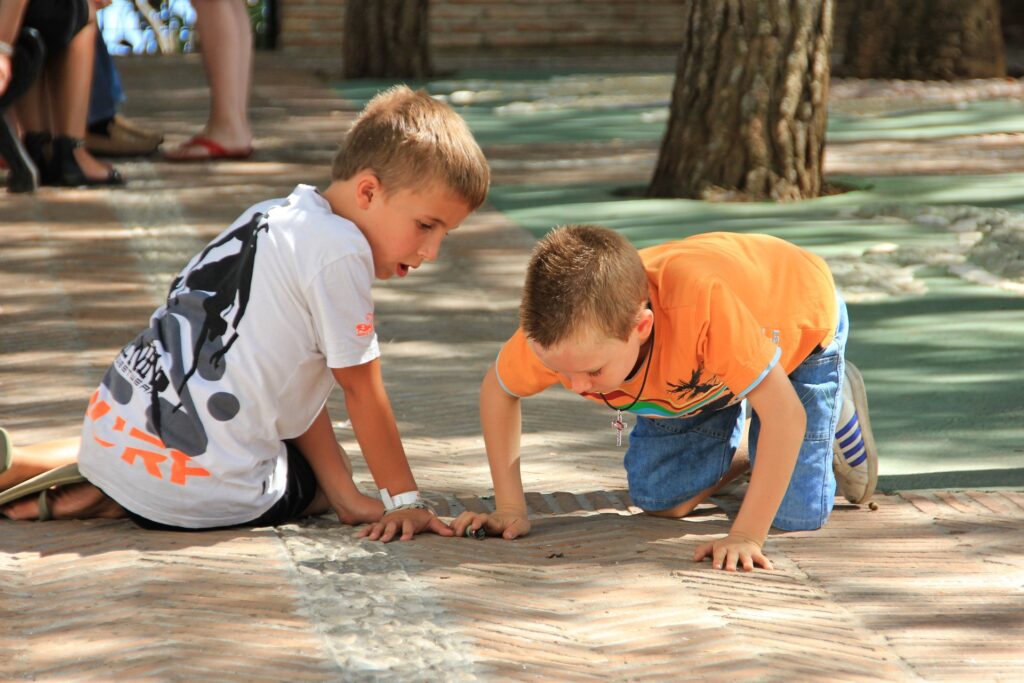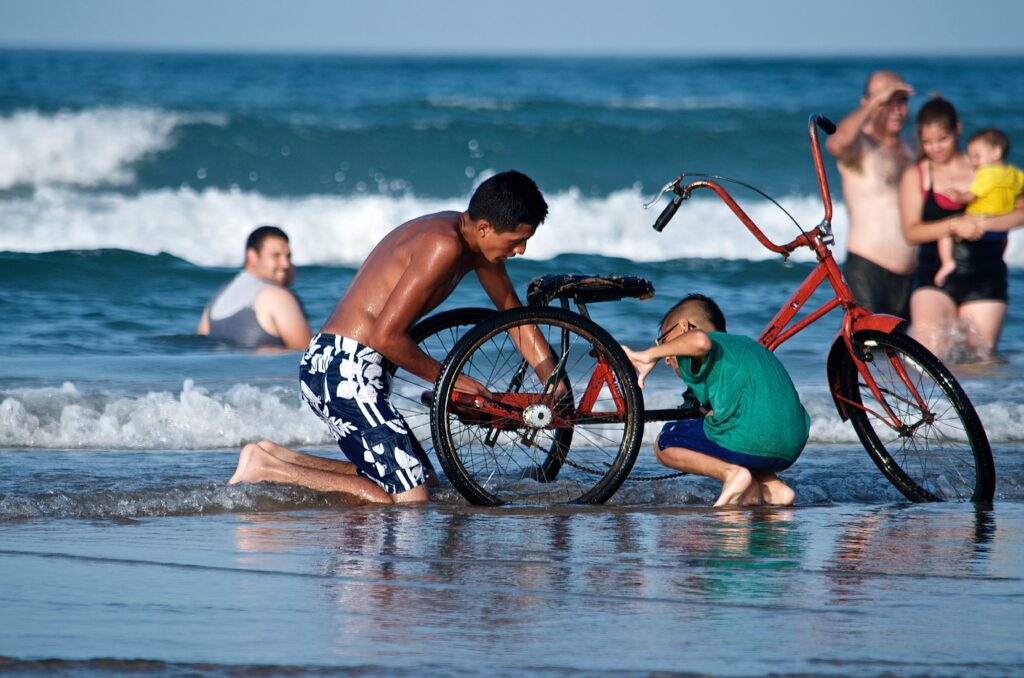In today’s digitalizing world, It is increasingly essential to develop problem-solving skills for success in various aspects of life, both for adults and kids. As parents, one of the most valuable gifts we can offer our children is the ability to navigate challenges and discover creative solutions. We empower our kids to become independent, adaptable, and resilient by fostering problem-solving skills from early infancy. So, this article will explore practical strategies and essential problem-solving skills to teach your children.
What is a problem-solving skill?
Problem-solving skills refer to an individual’s cognitive abilities and processes to identify, analyze, and resolve problems or challenges in their daily activities. These skills encompass a range of mental processes, including critical thinking, logical reasoning, creativity, decision-making, and effective communication. Therefore, Problem-solving skills are essential for individuals to navigate obstacles, make informed decisions, and find innovative solutions to complex issues.

Examples of challenges kids can tackle with problem-solving skills
Designing a Rube Goldberg Machine:
Kids can create a Rube Goldberg machine using everyday objects to perform simple tasks like popping a balloon or ringing a bell. They must design a sequence of cause-and-effect steps that require critical thinking, creativity, and logical reasoning to ensure each component functions smoothly.
Planning a Family Outing:
Children can lead the planning of a family outing or vacation. They need to consider various factors such as budget, transportation, activities, and the preferences of family members. This challenge requires decision-making, organization, and problem-solving skills to ensure an enjoyable and well-planned experience.
Solving a Math Word Problem:
Math word problems allow children to apply analytical and logical reasoning skills. They must decipher the problem, identify relevant information, and apply mathematical concepts to find a solution. So, solving math word problems enhances critical thinking, problem identification, and decision-making abilities.
Resolving Conflict with a Friend:
Children can employ problem-solving skills to find a resolution when faced with a conflict or disagreement with a friend. This involves active listening, empathy, and brainstorming fair and mutually beneficial solutions. Conflict resolution fosters communication, collaboration, and the ability to negotiate effectively.
Organizing a Fundraiser:
Children can take the initiative to organize a fundraiser for a cause they care about because they must plan the event, set goals, allocate responsibilities, and address potential challenges. This challenge develops project management skills, problem identification, decision-making, and creative thinking.
Building a Structure with Limited Materials:
Give children limited materials, such as popsicle sticks or building blocks, and ask them to construct a stable and creative structure. This task requires problem-solving skills, spatial awareness, logical reasoning, and creativity to design and build a stable network within constraints.
Solving a Logic Puzzle:
Logic puzzles, such as Sudoku, crosswords, or grid-based puzzles, challenge children to think critically and use deductive reasoning. These puzzles require them to analyze patterns, make connections, and draw logical conclusions. Solving logic puzzles improves critical thinking, analytical thinking, and logical reasoning abilities.
Creating an Invention or Innovative Solution:
Encourage children to identify a problem they encounter daily and develop an innovative solution to address it. This challenge nurtures creativity, critical thinking, problem identification, and the ability to think outside the box.
Designing an Obstacle Course:
Children can create an obstacle course for themselves or others to complete. They must consider the course’s layout, challenges, and safety aspects. This task requires planning, problem-solving, creativity, and the ability to anticipate potential issues and provide solutions.
Conducting a Science Experiment:
Engage children in conducting a science experiment, such as testing the effect of different variables or solving a scientific problem. They must follow the scientific method, analyze data, draw conclusions, and communicate their findings. Science experiments develop critical thinking, hypothesis testing, and analytical skills.
Other examples include:
Planning a social event with friends.
Dealing with social issues.
Finding solutions when they are bored.
Managing their allowance
Joining an internship to gain work experience.
Time management
Managing peer pressure
Resolving conflicts between people.
Locating homework that needs to be completed.
Fixing a spoilt and broken toy.
Managing school work with extracurricular activities.
Planning social events with friends.
Children can develop and strengthen their problem-solving skills by engaging in meaningful and enjoyable activities that involve these challenges. These examples highlight the diverse range of scenarios in which problem-solving skills are applicable, emphasizing their importance in various aspects of life.

9 Effective ways to develop problem-solving skills in kids
Encourage critical thinking:
Critical thinking lays the foundation for problem-solving. Encourage your child to analyze situations, ask questions, and think beyond the obvious. Engage them in thought-provoking discussions, provide open-ended challenges, and stimulate their curiosity. Encouraging critical thinking nurtures their ability to approach problems with a proactive and analytical mindset.
Foster Creativity and Innovation:
Creativity fuels problem-solving by helping children think outside the box. Encourage your child to explore different perspectives, brainstorm ideas, and embrace unconventional solutions. Engage them in activities that foster creativity, such as arts and crafts, storytelling, or building projects. By nurturing their imagination, you enhance their ability to approach problems from various angles and find innovative solutions.
Develop decision-making skills:
Decision-making is a key aspect of problem-solving skills kids must develop. Teach your child to evaluate options, consider consequences, and make informed choices. Provide opportunities for decision-making, such as letting them choose their activities, discussing pros and cons, and encouraging them to justify their decisions. Doing so empowers them to take ownership of their choices and learn from their successes and failures.
Teach persistence and resilience.
Problem-solving development in kids often involves encountering setbacks and obstacles. Teach your child the value of consistency, perseverance, and resilience when faced with challenges. Please encourage them to persevere, learn from failures, and adapt their strategies. Mistakes are part of learning opportunities, and success often comes after overcoming difficulties. By instilling resilience, you equip your child with the determination to tackle complex problems head-on.
Promote collaboration and communication:
Effective problem-solving often requires collaboration and teamwork. Encourage your child to work with others, share ideas, and listen to different perspectives. Engage them in group activities, team sports, or collaborative projects. Teach them active listening, empathy, and practical communication skills. By promoting collaboration, you teach your child the value of diverse insights and the power of collective problem-solving.
Introduce logical reasoning:
Logical reasoning forms the backbone of practical problem-solving. Teach your child to break down problems into smaller, manageable parts and identify patterns or connections. Engage them in puzzles, riddles, or logic games that enhance their logical thinking skills.
However, you empower them to approach complex problems with clarity and precision by developing their ability to think step-by-step and draw logical conclusions.
Provide real-life problem-solving opportunities:
When kids develop problem-solving skills, Please encourage your child to apply their problem-solving skills to real-life situations. Allow them to face age-appropriate challenges and involve them in decision-making processes at home. Whether it’s planning a family outing, organizing their room, or resolving conflicts with siblings or friends, let them navigate these situations independently. Offer guidance when needed, but prioritize fostering their problem-solving autonomy.
Don’t always provide the answer.
It’s disheartening to watch our kids struggle, but the processes our brains go through when we work can help us be better prepared the next time we encounter a similar challenge. So, allowing your child to work and even fail can lead to better learning and more vital problem-solving skills.
Use everyday moments. …
Ask open-ended questions. …
Center emotions. …
Read books and tell stories. …
Take advantage of natural curiosities and interests. …
Model problem-solving. …
Look to the child for the solution.
Importance of teaching kids problem-solving skills
Teaching children problem-solving skills is of paramount importance due to the numerous benefits it offers. Here are some key reasons why it is essential to foster problem-solving skills in kids:
Enhances Critical Thinking:
Problem-solving skills develop critical thinking abilities in children. Also, they learn to analyze situations, assess information, and evaluate multiple perspectives. Problem-solving skills foster their ability to think critically, make informed decisions, and solve problems effectively.
Promotes Creativity and Innovation:
Problem-solving encourages children to think creatively and explore innovative solutions. It nurtures their imagination and helps them develop alternative approaches to challenges. Creative problem-solving allows for flexibility, adaptability, and the ability to think outside the box, vital skills in an ever-changing world.
Builds Resilience and Perseverance:
Problem-solving teaches children to face obstacles, setbacks, and failures with resilience. They learn to persistently work towards finding solutions, adapt their strategies, and learn from their mistakes. So, Building strength and perseverance helps children develop a growth mindset and the ability to confidently handle challenges.
Encourages Independence and Autonomy:
Problem-solving skills empower children to tackle issues independently. Most importantly, they learn to identify problems, analyze them, and explore potential solutions independently. By fostering independence and autonomy, children become more self-reliant and capable of navigating challenges in various areas of life.
Develops Decision-Making Abilities:
Problem-solving involves making decisions based on carefully evaluating available options. Teaching children problem-solving skills helps them develop strong decision-making abilities and also learn to weigh pros and cons, consider consequences, and make choices aligned with their goals and values.
Enhances Communication and Collaboration:
Problem-solving often requires collaboration and effective communication because children learn to express their ideas, actively listen to others, and work together to find solutions. These skills enable them to collaborate effectively, resolve conflicts, and understand different perspectives.
Improves Academic Performance:
Problem-solving skills have a positive impact on academic performance. Children with strong problem-solving abilities excel in subjects requiring critical thinking, logical reasoning, and analytical skills. They can confidently approach complex tasks and projects, finding innovative solutions and achieving academic success.
Prepares for Future Challenges:
In today’s fast-paced and ever-changing world, problem-solving skills are crucial for success. By teaching children problem-solving skills, we equip them to adapt, innovate, and navigate uncertainties. So, problem-solving skills are essential for future academic, professional, and personal endeavors.
Promotes lifelong learning:
Problem-solving is a lifelong skill. We instill a love for learning and a growth mindset by teaching children problem-solving skills. They develop the confidence to seek new knowledge, approach challenges with curiosity, and continuously enhance their problem-solving abilities throughout their lives.
Teaching children problem-solving skills is essential for their overall development. It empowers them to think critically, solve problems creatively, make informed decisions, and navigate challenges resiliently. These skills provide a solid foundation for academic, professional, and personal success, enabling children to thrive in a rapidly changing world.

How to practice problem-solving skills
Kids can practice and enhance problem-solving skills through engaging activities and exercises.But here are some practical ways for kids to practice problem-solving skills:
Brain Teasers and Puzzles:
Encourage children to engage in brain teasers, puzzles, riddles, and logic games because these activities challenge their critical thinking, logical reasoning, and analytical skills. Sudoku, crosswords, jigsaw puzzles, and tangrams are excellent options.
STEM Activities:
Engage children in engineering, science, technology, math, and other STEM activities because these activities promote problem-solving by requiring kids to design, build, and experiment. Building structures with blocks, solving engineering challenges, conducting science experiments, or programming simple robots are great examples.
Role-Playing and Scenario-Based Games:
Encourage children to engage in role-playing or scenario-based games that involve decision-making and problem-solving. This could include playing detective, solving mysteries, or participating in interactive storytelling activities where they have to make choices and face consequences.
Collaborative Projects:
Engage children in collaborative projects that require teamwork and problem-solving. This could involve working on a group art project, organizing a small event, or designing and building something together. So, Collaborative projects foster communication, collaboration, and the ability to find solutions as a team.
Real-Life Situations:
Encourage children to practice problem-solving in real-life situations. Involve them in decision-making processes at home, such as planning a family outing, organizing a party, or solving conflicts. This provides them with opportunities to apply problem-solving skills to practical scenarios.
Scavenger Hunts and Treasure Hunts:
Organize scavenger hunts or treasure hunts where children follow clues and solve puzzles to reach a final goal. These activities promote critical thinking, logical reasoning, and the ability to connect information to find solutions.
Reflection and Journaling:
Most importantly, encourage children to reflect on their problem-solving experiences by journaling or discussing their approaches and strategies. This helps them identify strengths and weaknesses, learn from their experiences, and refine their problem-solving skills effectively.
Storybooks and creative writing:
Engage children in reading storybooks or writing their own stories. Also, encourage them to imagine different scenarios, develop characters, and resolve conflicts within the report. This nurtures creativity, critical thinking, and the ability to create solutions.
Real-Life Problem-Solving Challenges:
Present children with age-appropriate real-life challenges and let them work through them independently. This could involve tasks like planning a budget, organizing their room, or finding solutions to everyday problems. Also, Provide guidance and support as needed, but encourage them to think through the problem-solving process independently.
Discussion and Debates:
Engage children in thought-provoking discussions and debates. Also, encourage them to express their opinions, listen to different perspectives, and provide logical reasoning to support their arguments. This enhances critical thinking, communication skills, and the ability to analyze complex issues.
However, Children can practice and strengthen their problem-solving skills by engaging in these activities while having fun and developing their cognitive abilities. It is essential to provide a supportive environment where mistakes are seen as learning opportunities and encourage children to approach challenges positively.
Conclusion:
Read more of our articles here @abundanceandkiddies.com
In conclusion, it is critical to develop problem-solving skills in kids, especially in this digitalization era, because it will help them succeed in life; you are equipping kids with invaluable tools for success in an ever-changing world by teaching them how to develop problem-solving skills. So encourage critical thinking, foster creativity, teach decision-making, and promote collaboration.
However, emphasize the importance of persistence, resilience, and logical reasoning. By providing real-life problem-solving opportunities, you empower your children to become resourceful, innovative, and adaptable individuals who can confidently face challenges and find practical solutions throughout their lives.
Shop Children’s Kitchen Kits here Shop Kishoo Children wear here Miniclasix Children sweaters hereBaby Bed Cradle here Children’s Bikes and Bicycles here Musical Toys, Tricycles, And Home Furniture Power Bikes and Bicycles for Children